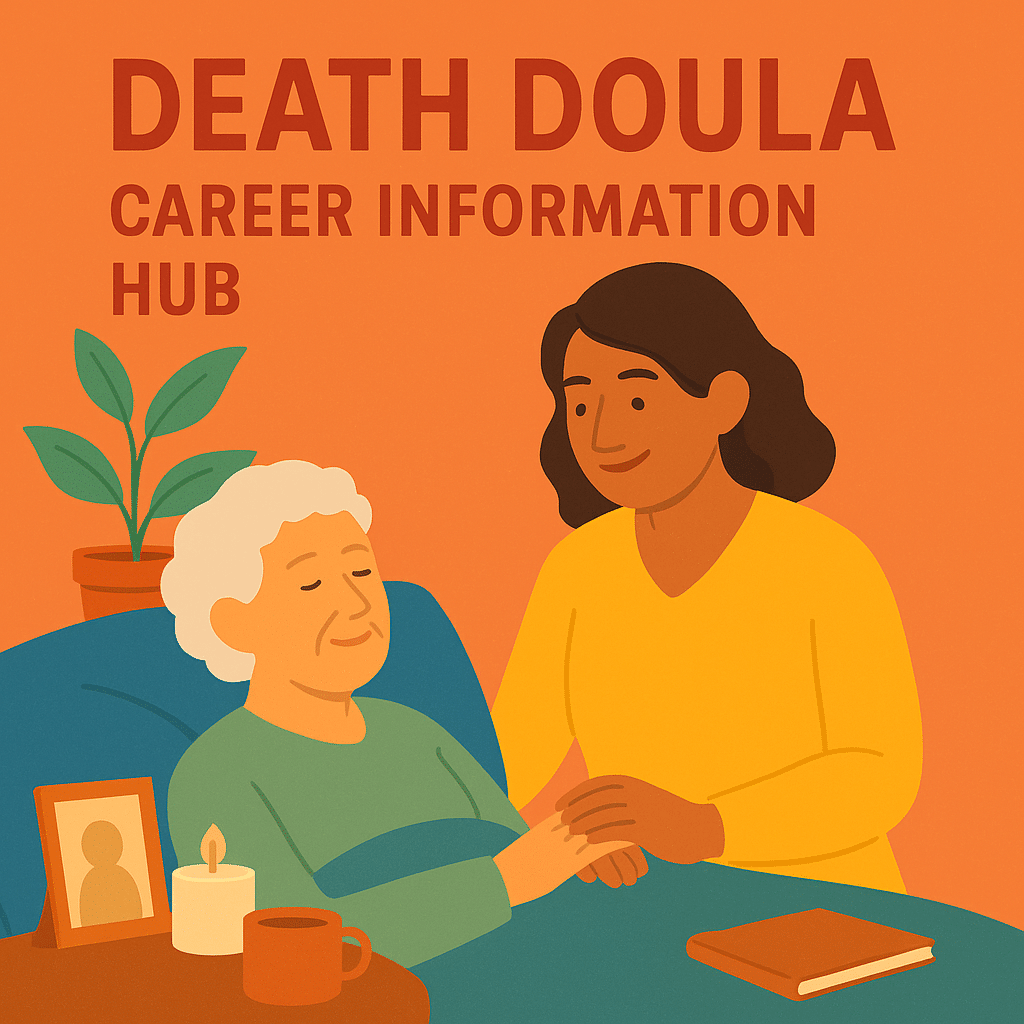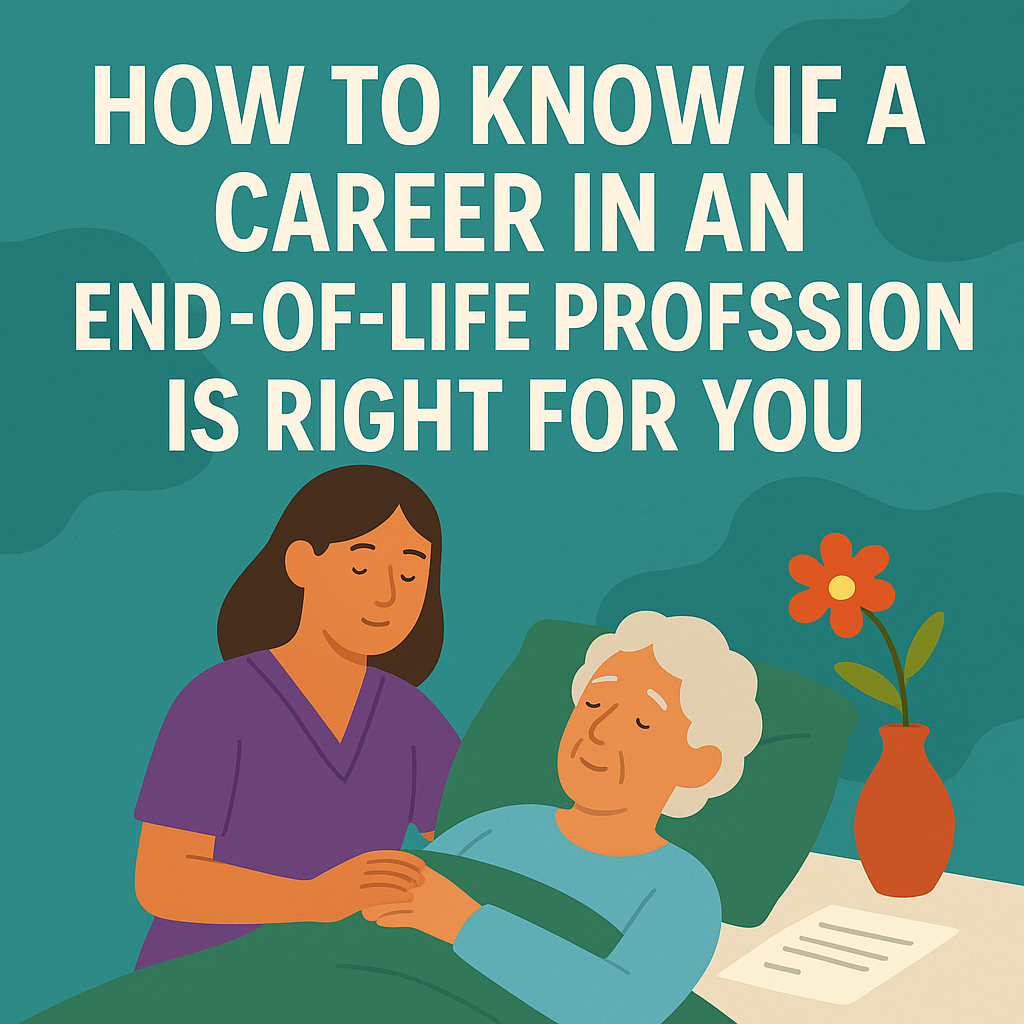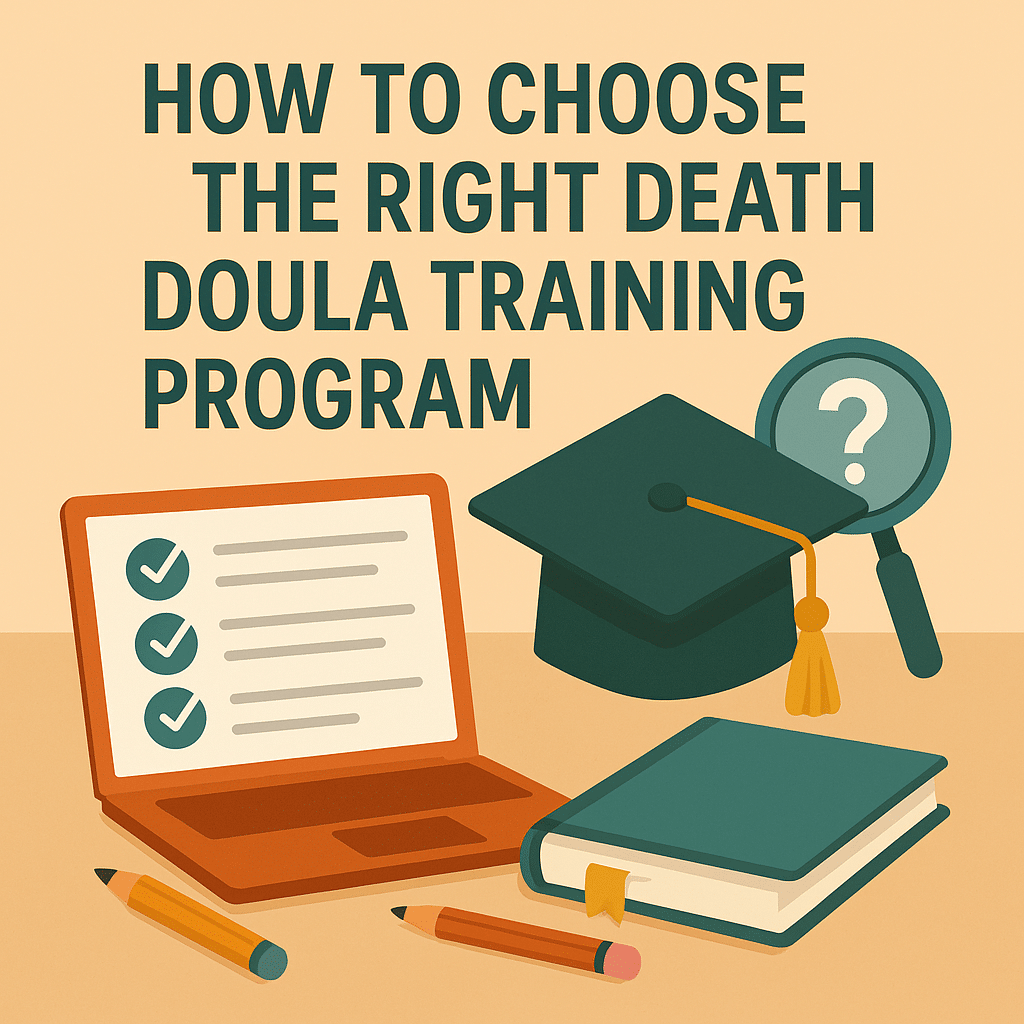Comfort, Calm, and a Calling
The Death Doula Career Information Hub
Death doulas support people at the end of life with presence, planning, and comfort. They do not replace medical or hospice care. Instead, they provide emotional, spiritual, and practical support that helps individuals and families navigate dying with intention and dignity. Whether you feel called to this work or are exploring a new career path, becoming a death doula allows you to make a meaningful impact during one of life’s most important transitions.

Key Things To Know
Before you commit to this path, here are a few important things to understand about becoming a death doula.
- It is a non-medical role: You do not provide medical treatment. Your focus is on companionship, advocacy, and preparation.
- Training is unregulated in most places: There is no national license, but many established programs offer certificates, peer support, and mentorship.
- You can be paid or volunteer: Some doulas work privately with families, others volunteer through hospices or nonprofits.
- It is highly personal work: You may sit with someone who is dying, help plan a vigil, support loved ones, or assist with legacy projects.
- Emotional boundaries are essential: The work is intimate and emotional, so knowing your limits is just as important as being present.
- There are many approaches: Some doulas focus on spiritual guidance, others on planning, education, or bedside care.
- You will collaborate with other professionals: Doulas often work alongside hospice teams, chaplains, funeral homes, or care coordinators.
Why Choose This Career?
Many people are drawn to this role because they feel called to serve others during one of life’s most sacred transitions.
- It is meaningful work: You help people feel seen, heard, and cared for during a deeply personal time.
- You bring comfort to families: Your presence helps reduce fear and confusion for loved ones.
- It fits many lifestyles: Some doulas work full-time, others offer support part-time, and many volunteer.
- You create your own path: You can focus on the areas that match your strengths, from legacy work to vigil sitting to practical planning.
- You grow as a person: The work is intimate, humbling, and often life-changing.
- It pairs well with other roles: Many grief counselors, hospice volunteers, and spiritual leaders add doula training to their toolkit.
Job Responsibilities
What death doulas do depends on the needs of the person or family, but the focus is always on non-medical support.
- Emotional presence: Offer calm, compassionate support to the dying person and their loved ones.
- Practical planning: Help with vigil planning, comfort items, end-of-life wishes, and logistics.
- Legacy projects: Assist with writing letters, recording memories, or preparing keepsakes.
- Respite care: Sit with the person so family members can rest or take a break.
- Guidance and advocacy: Help families navigate hospice, funeral planning, and next steps.
- Education and preparation: Explain what to expect as death approaches in simple, gentle terms.
- After-death support: Some doulas stay after the person passes to offer guidance or help with rituals.
Education and Certification Requirements
There is no formal license required to become a death doula, but training and mentorship can make a big difference.
- Choose a reputable training program: Look for programs that cover ethics, communication, active listening, and bedside support.
- Understand your goals: Some doulas focus on hospice partnership, others on private practice or community service.
- Get hands-on practice: Many trainings include role-play, real case studies, or suggested volunteer work.
- Stay current: End-of-life care is evolving. Continued learning helps you grow and stay informed.
- Optional certifications: While not required, some doulas seek certification through organizations or training providers to build credibility.
How To Get Started
If you feel called to this work, here are the steps to begin your journey as a death doula.
- Explore the role: Read books, listen to podcasts, or shadow someone already doing this work.
- Choose a training program: Research your options and select a course that fits your values and learning style.
- Talk to people in the field: Ask questions and learn from experienced doulas and hospice professionals.
- Practice active listening: This is one of the most important skills you will use in your work.
- Join a community: Many doulas find strength in peer groups, mentorship circles, or local networks.
- Start offering support: You do not need to wait for perfect conditions. You can begin by helping a neighbor, volunteering, or showing up with kindness.
Common Myths
There are a lot of misunderstandings about what death doulas do. Here are a few of the most common.
Myth: You have to be a nurse or therapist.
You do not need a clinical background. Doulas provide emotional and logistical support, not medical care.
Myth: Only certain people need a doula.
Death doulas can support anyone, whether they are receiving hospice care, dying at home, or just starting to plan ahead.
Myth: You have to be available 24/7.
Many doulas work with boundaries in place and coordinate care with families or teams.
Myth: It is too sad to do every day.
The work is emotional, but many doulas describe it as peaceful, powerful, and healing.
Myth: It is only for the dying person.
Doulas support entire families, helping them cope, communicate, and prepare.
What Makes Someone A Good Fit
This work requires a balance of deep compassion, calm presence, and clear boundaries.
- You listen more than you talk: People feel heard and safe when you are near.
- You are comfortable with silence: You do not need to fill every moment with answers.
- You can stay steady in emotional situations: You remain calm even when others are grieving or overwhelmed.
- You respect all beliefs and values: You support people on their terms, without judgment or agenda.
- You are emotionally self-aware: You know when to step back and care for your own well-being.
- You value presence over fixing: You understand that your role is to witness and walk beside, not to solve or save.
Articles
Frequently Asked Questions
Here are some of the most common questions about becoming a death doula.
Disclaimer: The information provided on this website and by Buried in Work is for general informational purposes only and should not be considered legal advice. Please consult with a qualified attorney or subject matter expert for advice specific to your situation.




